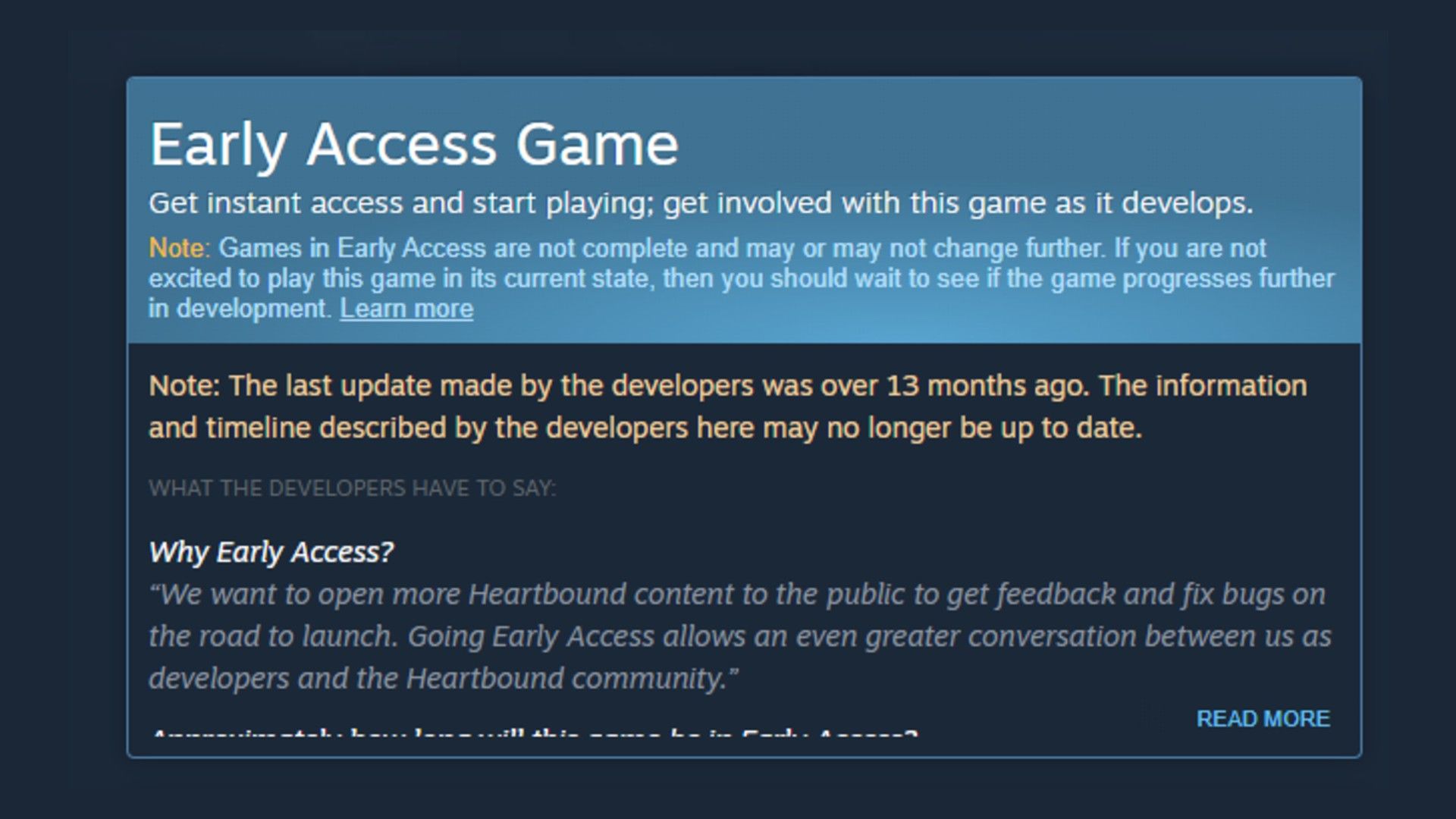Steam has introduced a new feature to help people know how often Early Access games are updated. If an Early Access game hasn’t been updated in a long time, an alert will show up on its store page, letting you know how long it’s been since the last update from the developers.
These messages are meant to give buyers more information about the games they’re thinking of purchasing. Early Access games have the warning that they may not get finished, but prior to this, there was no indication about whether the games were still being worked on. Many Early Access titles might be unfinished or could be abandoned but still for sale.
The warning says: “Note: The last update from the developers was over [X] months ago. The details shared by the developers may not reflect the current status.” The feature should help users avoid buying failed projects, but there is a caveat. The note only counts updates to the game’s main branch, which is fair but can lead to some confusion.
For example, Heartbound received an update this month, but its note says the last update was made 13 months ago. The update was for a development branch and not the main branch, so Steam isn’t counting it as an update. That’s fair because it’s not really changing the game in a big way. However, Heartbound has not been abandoned, as Pirate Software often discusses its development and even explained the wait last month.
This is a situation where the game hasn’t received a major update due to what is likely to be a good reason. There might be situations where a game seems abandoned for different reasons, like developers focusing on another part of the game’s development or facing real delays in implementing the update. So, this system isn’t perfect.
With this new note feature, developers might try to make their projects look active by making small updates, like changing a single texture, just to avoid getting a warning. While this is likely, it incentivizes the developer to return to development. This is a small silver lining, but it’s better to have this kind of note than not to warn users about games that could be abandoned.
The success of this system depends on how well it stops people from buying games that aren’t actually being worked on, as well as how developers react to the warnings about their games. Even still, this initiative is a big step toward reducing the risks of buying Early Access games.
Source: SteamDB/Bluesky





